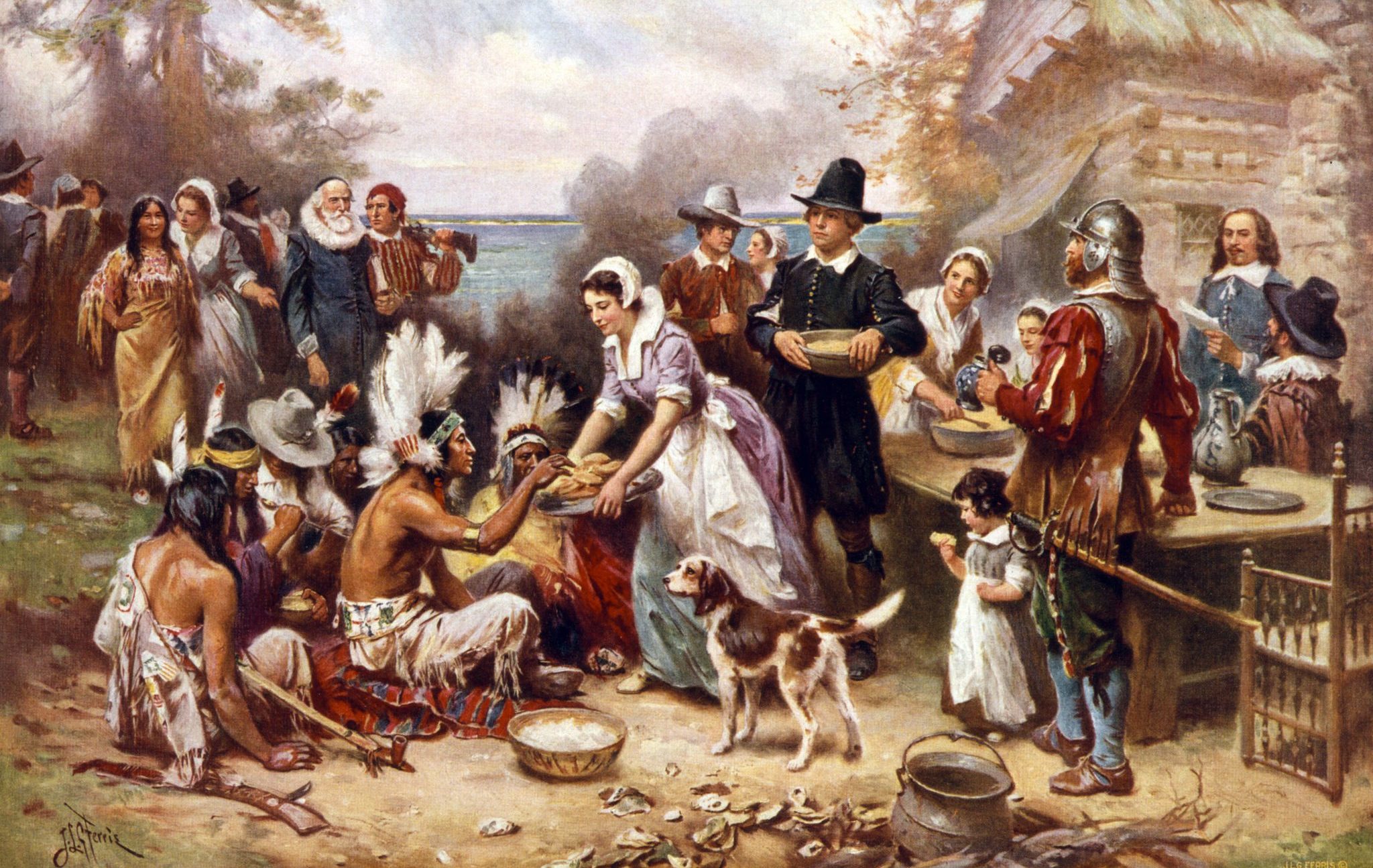Our National Sabbath

Black Friday is a favorite topic of sanctimonious Thanksgiving columnists, who will spoil your turkey today with dour sentiments about all the materialist excess that’s about to begin at an ungodly hour this evening. But really, cut them some slack—and some cranberry bread—because who is sadder: the one shopping, or the one working on Thanksgiving?
I hope you said the latter. (And in case you thought this essay was going to be a complaint to my employer, this column was pre-written. We believe in family and feasting around here.) On this national feast day, I’m reminded that the purpose it serves the nation is much like another holiday, celebrated weekly in the Christian church: the sabbath. For both, the day serves as a respite from work and, at least as originally intended, a wellspring of nourishment for both the body and the soul.
Ours is a culture glutted with work, often done purely for its own sake. For all the jobs the modern world has created, it has taken from many the kind of work that gives a man real purpose and benefits his neighbor. It is unsurprising, thus, that our thirst for meaning would lead us to consume ever more activity, as human nature does as it always does when trying to fill a void. But this is also a constant: more is not better. The meaning we seek in activity is found, yes, in a different kind of work than paper pushing, but also in serious rest. That is, “you are more than your job” means “you are what you do with your free time.” So shut off Twitter.
The purpose of a sabbath is to set aside ambition and distraction and to refocus through rest and worship. It’s a day of sanctification, but a very specific kind. Polish Rabbi Abraham Heschel, in his well-loved book on the sabbath, writes that the seventh day is “a day for praise, not a day for petitions. Fasting, mourning, demonstrations of grief are forbidden.” And while Christians would take issue with his forbiddance of remembering sins, confessing, or petitioning forgiveness on the sabbath, Heschel is right to remind readers that sabbaths are feast days, and feast days are for rejoicing. Mourn before and mourn after, but on the sabbath, let your mourning be turned to dancing.
“Remember the Sabbath Day and keep it holy.” The Decalogue is explicit that there is a right way to rest. Scrolling isn’t it. Put down your phone, close your laptop, and lace your fingers instead with a prayer of thanksgiving. Feast. Rest. Spend long enough in conversation with your relatives to get past the small talk and to demonstrate your gratitude to them by listening and loving.
At the first Thanksgiving, according to Edward Winslow’s account, the Pilgrims and Natives feasted for three straight days—a fitting length of time after such a long season of hardship. Today, we barely spare an afternoon, and often return with relief to the world on our screens that is curated, unlike the conversation at the table, or to secularism by way of shopping, football, Hallmark movies. Is an afternoon enough sabbath rest for a whole year of work? Does a half-day give us appropriate time to lift praise to the Lord for His provision and sustenance for the past 12 months? Before we scurry to the next activity, let us relish restfulness for the whole weekend.
Perhaps, unlike the sabbath, there is nothing sacred about Thanksgiving Day itself, save the fact that it has been celebrated since before we were even a colony. It’s our oldest tradition as an American people, and that in itself deserves celebration. Often, we talk about redeeming culture, winning culture wars, and so on, but here is a real application of the kind of cultural renewal we so desire. The way we celebrate the holiday says much about not just what we value, but whether we take those values seriously—whether we mean it when we say we care about tradition, or if that love of tradition is secondary to our desires to finish a project, post something cheeky, not miss an email, or even just avoid an awkward social situation. Talk about family, faith, and community is just that if you’re logging on, rather than shutting down, on Thanksgiving.
The town of Charlestown, Massachusetts issued the first official Thanksgiving Proclamation on June 20, 1676. In it, they thanked God for remembering mercy toward his covenant people. To not do so was not merely wrong, but “insensible,” lacking sense. Thanksgiving is holy, but it is also natural—it flows from who we are, as created, worshipful beings.
It certainly bespeaks our positive Thankfulness, when our Enemies are in any measure disappointed or destroyed; and fearing the Lord should take notice under so many Intimations of his returning mercy, we should be found an Insensible people, as not standing before Him with thanksgiving, as well as lading him with our Complaints in the time of pressing Afflictions.
May your feast be long and your rest be worshipful. Happy Thanksgiving.
Comments